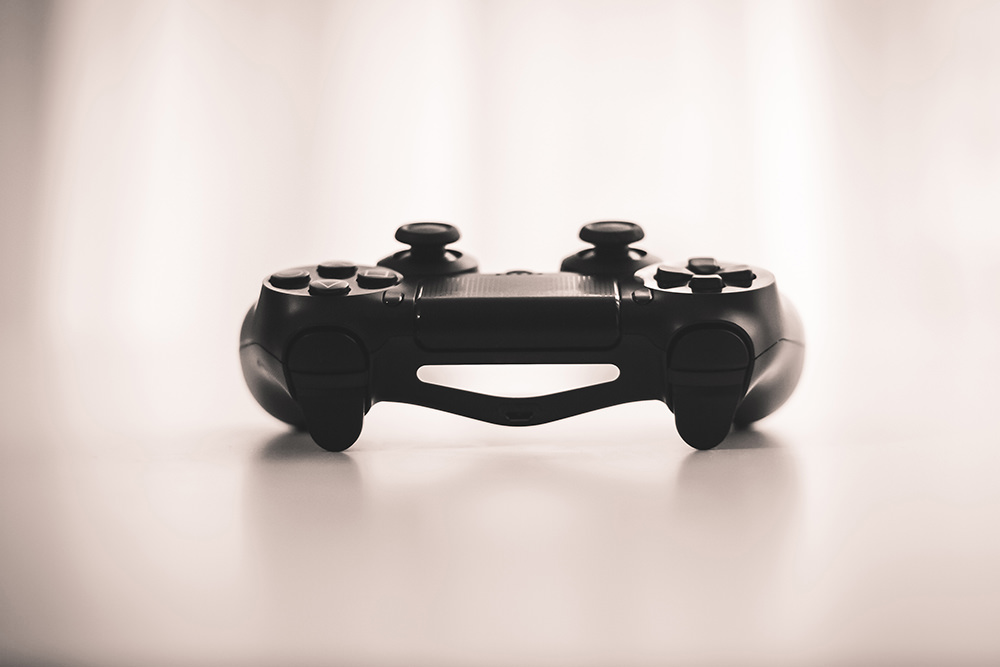If you are concerned that your teenage son or daughter has a problem with video gaming and/or compulsive internet use, here is information that can help.
The Warning Signs…
- Is your teen spending more and more time in his or her room, or on their phone or laptop, and less time engaging with outside world?
- Have you noticed that your teen’s internet or gaming habits are starting to have a negative impact on grades, housework, or even hygiene?
- Have you noticed intense mood swings connected to gaming or internet use, such as experiences of excitement and elation when looking forward to screen time and then later symptoms of withdrawal, such as irritation, anger, or depression?
- Do you often find yourself in a power struggle with your teen over limits and boundaries to screen time?
- Does your teen tend toward introversion and struggle to make friendships at school, preferring the company of online friends or video game characters?
If you answered, “Yes” to several of these questions it is quite possible that your son or daughter is experiencing a technology addiction.
Technology Can Turn Into a Big Problem, and Fast…
As a parent, it can be very confusing, concerning, and even frightening, to watch your child spending more and more time online and/or gaming and less and less time with family and out in the world. You may even find yourself worrying, if your teen’s current behavior continues, “Will develop into a fully functioning and healthy adult?”
To most parents raised in the age of board games and rotary telephones, it is hard to imagine why someone would choose to spend time video gaming or on the internet over “normal” teen activities such as sports, playing outside, spending time out with friends, or even dating. This fundamental disconnect between your teen’s world and yours can sometimes feel like a great divide, and can also cause problems when trying to communicate your concerns and in setting boundaries and limits with your teen. If your teenager feels you do not understand why they game, or spend time online, and what they get out of it, they are unlikely to listen to what you have to say or respect the limits put in place. Additionally, if your son or daughter is truly in the throes of a gaming and/or internet addiction, no matter what you may say or do, this will remain their number one priority and they will find a way to continue.
Addicted to Technology…
Internet Addiction
Technology is moving at a dizzying pace and has now become embedded into the fabric of our everyday life For teenagers, exposed to these technologies at an early age, this can cause some significant problems.
Now that the endlessly novel and enticing online world is available to many teens in the palm of their hands, and that more and more of their lives happen over the web, many teens are finding themselves sucked in. But this comes at a cost, as excessive time in front of screens viewing little bits of hyper-stimulating information designed to entice the viewer to become lost down the rabbit hole, literally changes brain chemistry. Additionally, teens actions online, in regards to sharing personal information and photos/video, can have serious life-long consequences which they often don’t realize until it is too late.
Gaming Addiction
Modern video games can interact with your child’s mind more like a drug then most people are aware. The video games of today are quite unlike those of years past. They are often online, involve realtime interaction with peers, and contain in-your-face hyper-stimulating sound and imagery. The content is often quite graphically violent and can desensitize your teen to real world violence. Additionally, game developers have learned ways to expertly tap into the pleasure/reward center of your teen’s brain, entrapping them in an addictive cycle that gains strength with each minute spent in front of the screen.
Video game and internet addiction is a very real psychological phenomenon, and produces clear physiological changes in the brain and body that lead toward the creation of a cycle of addictive behavior. If left unrestrained and untreated these addictions have the potential to drastically alter your child’s life course, decreasing motivation, stunting development, and greatly increasing the risk for other addictions in the future.
Gaming and internet addiction in teenagers is unfortunately now very common and places an immense strain on millions of families across the country. If you are concerned that your teen may have a problem with a technology addiction it is important that you bring them to a mental health professional trained to assess and treat behavioral addiction in adolescents.
Help is Available
Counseling for video game or internet addiction, especially if it is caught early, can be a very effective means of treatment. If it is determined that an addiction is involved, I work closely with the whole family to explain how technology addiction works, help parents set healthy boundaries, explore the impact of the addiction, and make a shift in behavior as quickly as possible to give your teen’s brain a chance to reset and rewire. After the initial phase of treatment we begin to explore and transform the roots of the addiction in order to prevent a relapse later in life.
Because modern technology is most likely here to stay, the ultimate goal of treatment is helping your son or daughter to create a healthy balanced relationship with technology. This always involves setting boundaries and limits, and can involve technology breaks, or periods of “sobriety.”
Perhaps You Have Some Questions or Concerns?
I think my teen could use some expert support, but I’m not sure if I have the money right now.
When considering if now is the right time to get support for your son or daughter it is important to remember that both their health and wellbeing and your own piece of mind is on the line, and that waiting could make the problem worse. I like to think of counseling for teens as an investment in their future. Because addiction to technology can lead to a host of other problems, such as future addictions, poor grades, and a lack of healthy meaningful relationships, it is important to treat the addiction as soon as possible; in doing so you save your child from potential future pain and suffering. Also, your financial investment now in counseling will most likely pay off by avoiding potential future expenses related to the effects of an unchecked addiction.
If you are still uncertain, it can be helpful to know that your initial consultation is 100% risk free. This means that if you bring your son or daughter in and, either they don’t feel it is a good fit, or I assess that he or she is not suffering from addiction to technology and counseling is not needed, you will not be billed.
My teen swears that they don’t have a problem with gaming or internet use, and that everyone uses these things.
No matter what your son or daughter says, what is important is that if you believe there might be a problem. It may be true that many of their friends are using technology as much as they are, however they may be handling it better, or their parents simply might not recognize the signs of an addiction. If you have noticed warning signs, such as the ones listed above, or simply have a gut feeling that something is up, it is important to bring them to a mental health professional that can assess for behavioral addictions in teens.
If your child refuses to come to therapy this can both be a sign that they have a problem they don’t want to face, and that there may even be a deeper problem going on that the technology use is pointing towards. You may want to share with them that many people go to counseling for a time to get help, and that this does not mean something is necessarily wrong with them but simply that they may need some extra support. You can also explain that the first visit is simply an initial consultation where they get to meet me and decide if therapy might be able to help and if I am a good fit for them as a counselor.
Sometimes things have to get worse before they get better. If your teen does not want to go to therapy it is important that you remember that you are in charge and must do what you feel is best. This can sometimes at first create an increased strain on you and your teen’s relationship. However, it is important to remember that you have their best interest in mind and that the long term goal is not only addiction treatment, but more harmony in the home. A good relationship with your teen is ultimately the best tool for the prevention of mental health issues. I also provide family counseling sessions, if the relationship between you and your teen becomes a stumbling block on the road to recovery.
Your Teen Can Make a Change . . .
I have specialized in working with teens since 2004 and have been trained in the assessment and treatment of behavioral addictions in adolescents. Your teen can make a change and they can overcome this addiction. I have seen time and time again teenagers realize, perhaps for the first time, the harm that is being done and what is at stake for their future, and then become motivated to make a shift. It is important to remember your teen is still developing and acquiring the skills to become a healthy young adult, and until they are able to make such healthy decisions for themselves, you must do this for them. One important skill most teens are still working on, and could use help with, is the ability to recognize when there is a problem and then to find the appropriate help. If your son or daughter is open to meeting me and giving counseling a try, it is very likely that counseling well greatly help them overcome this challenge.
Why Wait?
If you suspect that your son or daughter is struggling with addictive or compulsive behavior around gaming or internet use, I encourage you not to wait to get support. Please contact me and schedule your initial consultation.
Also, please feel free to contact me with any questions or concerns regarding the treatment of technology addiction in teens.

